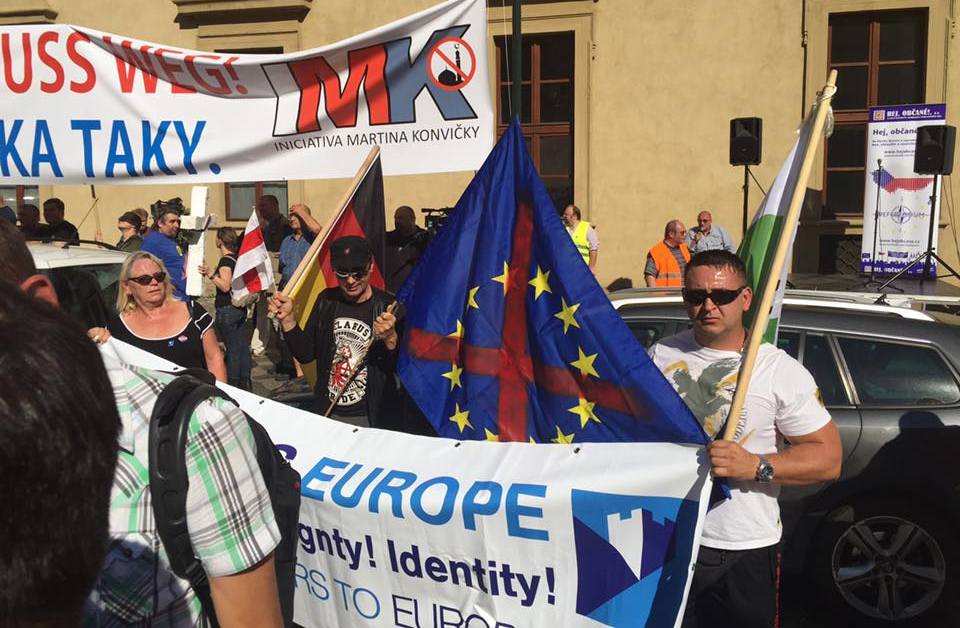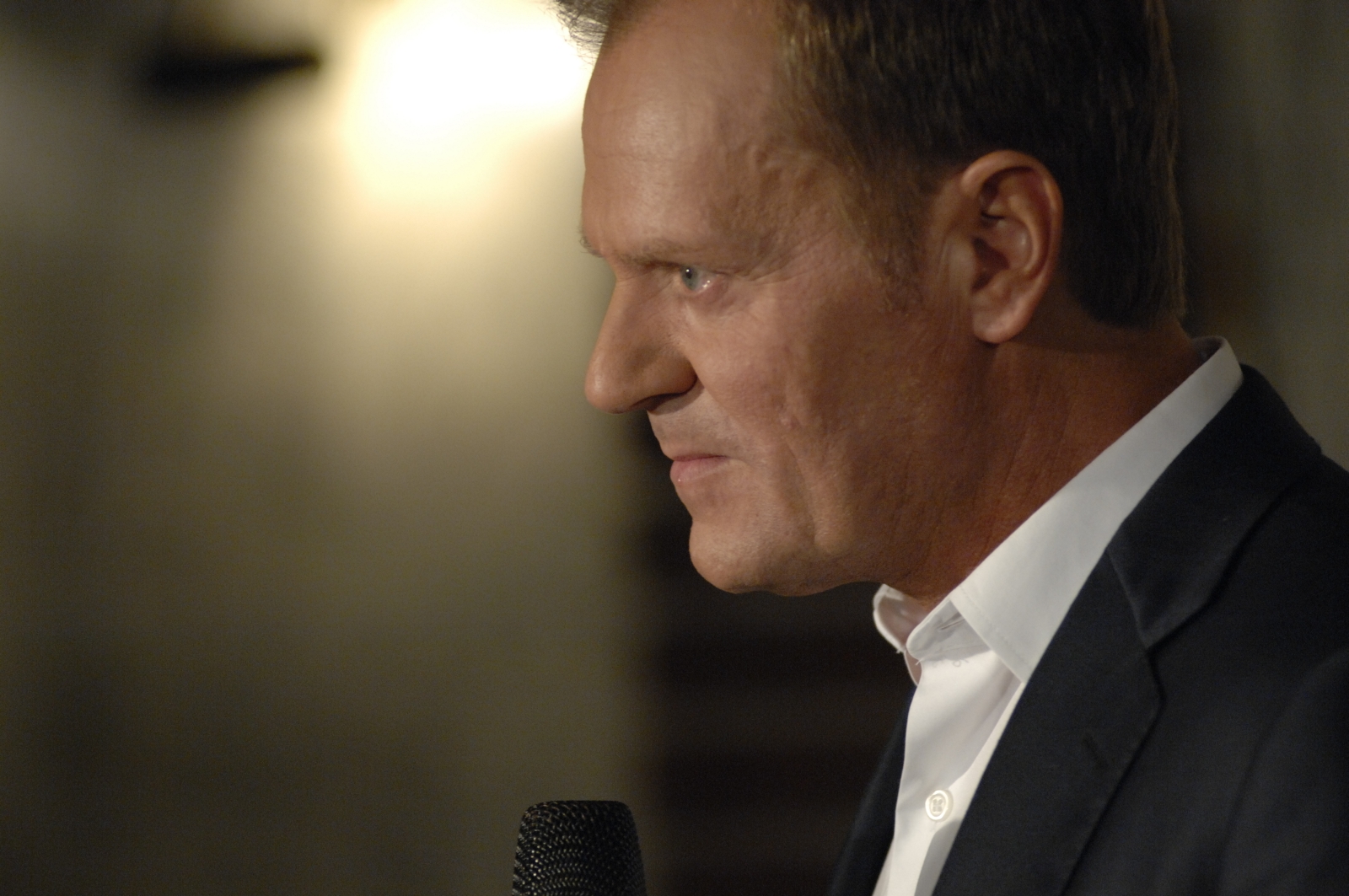Czechia – Five years ago, when French President Macron formulated his ideas on the future of the European Union, he chose for his speech the Sorbonne University in Paris. Apparently, he considered this place to be authentic enough for a French politician to formulate French views on the future European order. German Chancellor Olaf Scholz decided otherwise. He chose Prague to formulate the German view on the future of the European Union. In the premises of the ancient Czech Charles University, not in the premises of any German university, he delivered a speech in which he outlined the German view of the future of Europe.
The outrageous symbolism that happened in Prague, not in Berlin or Munich, must be rejected resolutely at the very beginning. Czech history has always been a history of coexistence as well as struggles with the German element for thousand years. Not always it was a mutually beneficial history, but more often an attempt to establish German rule and domination in Bohemia. That is why we, the Czechs, are obliged to be sensitive and careful to speeches delivered by German politicians about the future European order and “German responsibility for it” (as Scholz stated in his speech), made in Bohemia – often at our costs. Our history has learnt us to be cautious.
Olaf Scholz, the leader of Europe’s strongest power and Chancellor of the country that in reality decides about the fate of the European Union, has – during his speech – unscrupulously abused the ongoing war in Ukraine so as he could call for a “stronger geopolitical Europe”.
Throughout his speech he did not hesitate to exploit this wartime suffering, using it as a window of opportunity for proposals that are ultimately dangerous to European stability and prosperity. Just in this context, there is no need to take too much notice of small things, such as his remarks on possible reforms of the European Parliament or the European Commission, on creating European “Silicon Valleys”.
The most important and crucial idea is Scholz’s sentence that “abstract discussions will get us nowhere”, that we need to abandon the veto voting and establish in the European Council decision making processes based on qualified majority voting.
If this proposal became reality, it would fundamentally change decision making processes in the European institutions. That is why it should and must be completely unacceptable to small and medium-sized EU Member States, as this way of decision-making suits the large powerful EU members and helps them to defend and promote their economic and political interests. Though Scholz says that “these are just ideas and proposals to be thought about – not ready-made solutions”, he almost immediately refers to “Germany’s responsibility for Europe”.
To eliminate and finally get rid of the veto in the key foreign and security policy decisions, Scholz did not hesitate to exploit the desire of some countries to join the EU. He promised the German EU membership support for countries of the West Balkan, Moldova, Ukraine and down to Georgia despite the fact that such a membership is for – at least some of them – out of reality. “To become members will take some time, EU enlargement reforms in the candidate states will be taken in parallel with the EU’s institutional reforms. These must be taken immediately”, said Scholz with the clear aim of pushing for fundamental changes in voting procedures. The “German” end justifies the “German” means, I add.
Let’s not be fooled by Scholz’s nice sentences about beautiful Prague, its history, his quotes from important Czech writers and thinkers. These were merely the backdrop against which the German Chancellor made extremely dangerous proposals.
His calls “let us find compromises together” about European sovereignty, energy independence and the creation of our own European defence as a complement to NATO are just nice words to blur another significant attempt how to deprive EU Member States of any rests of national sovereignty.
Let us recall a current example: skyrocketing energy prices are the consequences of the “European solution”. Do we have a reason to believe Scholz now when he advocates that now is the right time to create a stronger geopolitical Europe? Definitely not.
If he had really cared about the future and prosperity of Europe, German chancellor would have made a serious speech in Prague on how to contribute to a peaceful settlement of relations between Ukraine and Russia. If he had really cared about social peace and economic stability, he would have proposed how to calm the energy markets. If he had really cared about the future prosperity of the European Union, he should have attacked the regulations and “ever-wider” harmonisations with which Brussels has been destroying our industries for decades.
Olaf Scholz chose in Prague a “German solution”. He announced to get weaker the weak and make stronger the strong. We must not accept it!
Some extracts from the speech of Olaf Scholz in Prague, on 29 August, 2022:
“In the past, EU enlargement reforms in the candidate countries have also taken place in parallel with the EU’s institutional reforms. This will also be the case this time.
We will not avoid this debate – certainly not if we are serious about EU enlargement. And we must take seriously the promises we have made to the candidate countries. That is the only way to achieve stability in Europe. So let us talk about reforms.
In the EU Council, at ministerial level, we need to act quickly and pragmatically. This must be possible in the future. However, where unanimity is necessary today, with each additional Member State, the risk also grows that the veto of a single country will block the will of all the other members. Anyone who thinks otherwise is denying European reality.
That is why I have proposed that, in the area of common foreign policy, but also in other areas such as tax policy, we should gradually move towards qualified majority decision-making. Although I am aware that this will also have consequences for Germany. We must realise that insisting on unanimous decision-making can only work in times that do not require rapid decision-making. However, this has not been the case since the Russian attack on Ukraine at the latest! […]
Let’s find compromises together! I could imagine, for example, that we start with qualified majority decision-making first in areas where it is absolutely crucial that we speak with one voice. For example, in the area of sanctions policy or human rights. […]
European sovereignty. […] After all, the core meaning of this concept is that we will achieve greater independence in all areas, that we will take greater responsibility for our security and that we will promote our values and interests even more unitedly around the world. […]
We must come together, overcome old conflicts and find new solutions. That sounds like a given. But it means a lot of work. […]
Citizens expect a European Union that ‘acts’. The results of the Conference on the Future of Europe are clear evidence of this. Citizens expect very concrete things from the EU: for example, faster progress on climate protection, healthy food, more sustainable supply chains or better protection for workers. […]
“When – if not now? […] Who – if not us?”




